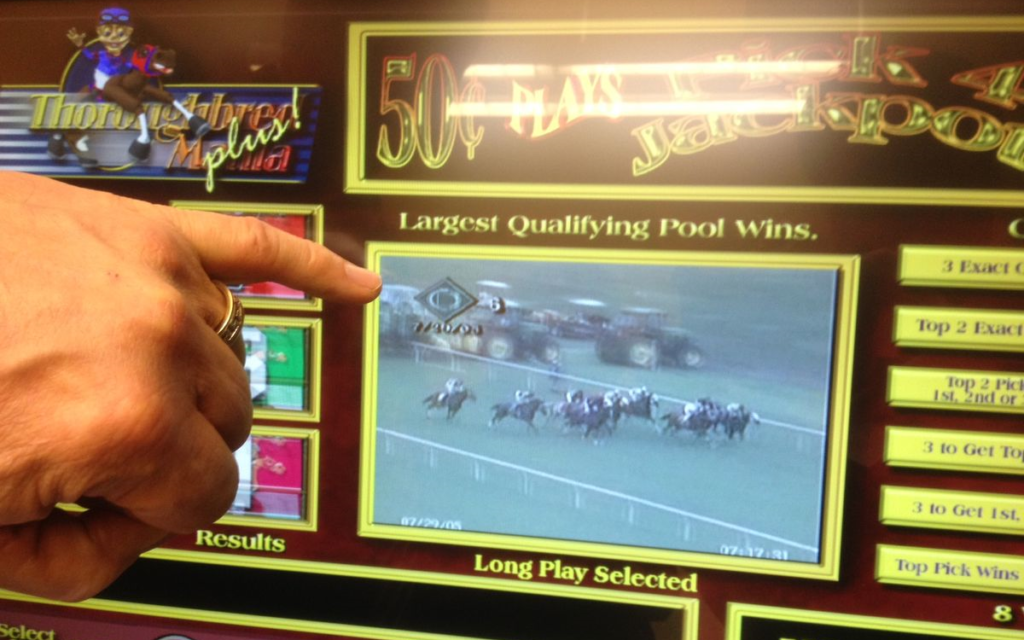In recent years, New Hampshire communities have been crushed by watching their own family, friends, and neighbors fall victim to drug addiction. Addiction devastates lives. New Hampshire knows this.
And yet, at the nagging of corporate gambling interests standing to make a killing, the New Hampshire legislature seems unable to resist the temptation of profiting from just a little bit more addiction money. SB 310 proposed casino gambling, which would extract hundreds of millions annually from problem gamblers. Fortunately, the House voted overwhelmingly to reject the casino bill. HB 480 proposes sports betting, which would do the same on a smaller scale. And this time, SB 41 proposes the installation of historic racing terminals in gambling dens around the state. Although technically not “slot machines,” these machines walk, talk, and smell like any other slot machine – see this example.
New Hampshire legislators know the dramatic effects that addiction has on families. Instead of building savings and security, individuals will be enticed to drain their money and lives into slot machine profits. Dr. Natasha Schull of MIT, who documented slot machines as being designed to trigger addiction, named this scheme “playing to extinction.” We know these machines are calculated to turn individuals from responsible citizens to helpless addicts for the sake of profit. And yet, SB 41 quietly passed the Senate in early March. Currently, the bill is in the House Ways and Means Committee: please let them know that you oppose more addiction in New Hampshire (you can email the entire committee here).
In addition to families being marred, local businesses will also lose. Gambling takes local money – millions of it – that is circulated through local goods, services, and entertainment, and diverts it to out-of-state gambling corporations.
Relying on money derived from exploitation corrupts the government. When millions of dollars are being derived from gambling interests, these interests become prominent influencers of the political process and policy. Drugs, commodified sexual entertainment, and even more gambling are the axis of gambling interests. Are we really so naive as to believe we can use gambling profits as a state revenue scheme and still be unaffected by its corrosive character?
Warren Buffett once famously characterized raising money via gambling as a tax on ignorance. Is it really worth making the poor even poorer in order to achieve revenue increase (on paper anyways)? Even aside from the moral dimension, is destabilizing families and making more people dependent on government programs and entitlements really a desirable long-term fiscal strategy? The government’s role is to provide a peaceful and lawful climate to enable businesses to do their work – not to seek short-term expansion by promoting schemes that prey on the wealth-building savings of people.
How many slot machines would this bill introduce into New Hampshire? According to oral testimony at the House hearing on April 16th, New Hampshire can expect to see 800 one-arm bandits spawn if this bill passes.
This is not small-time Friday-night friendly betting. This is a calculated business endeavor premised on extracting profits from addicted gamblers. This is neither a healthy nor ethical way to collect revenue for the state. Tell your state representative that New Hampshire needs less, not more, addiction.


